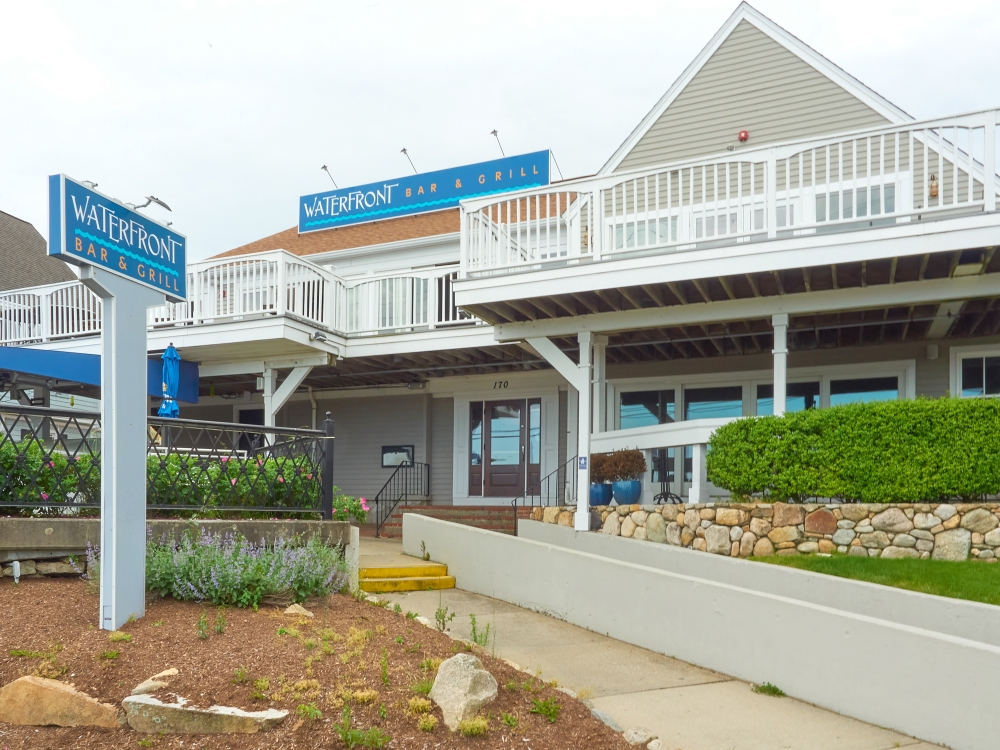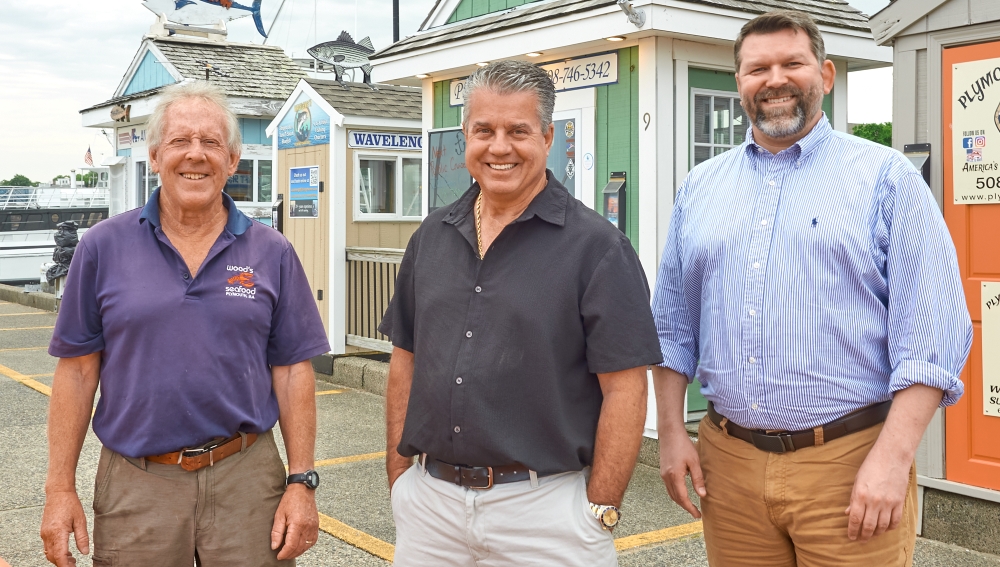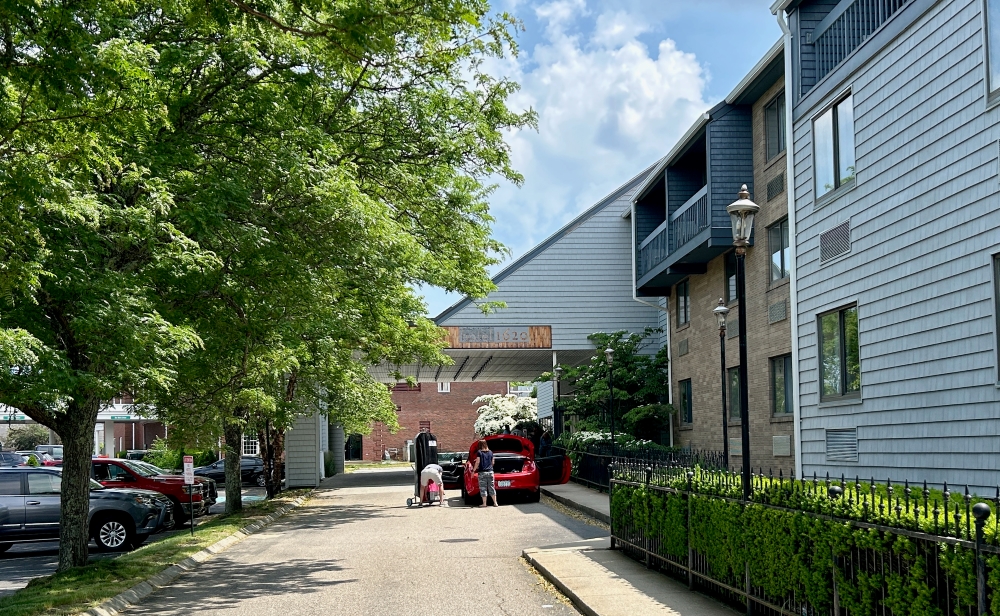Imagine a convention center near the waterfront, attracting thousands of new visitors to Plymouth each year, creating hundreds of jobs, and pumping millions of dollars into the local economy.
The idea will soon get a reality check, as a coalition of the tourism organization See Plymouth and the Plymouth Foundation prepares to issue a public RFI (request for information) from developers or companies that may be interested in pursuing a convention center and hotel complex in the area.
“We want to put out the RFI and see how the market responds,” said Stephen Cole, executive director of the foundation.
The decision to issue an RFI follows a state-funded feasibility study completed last year by a national consulting firm that found Plymouth to be a viable location for a mid-size convention center.
“I was pleased to see the study found what we had expected: that there is a great need for a convention center south of Boston and it would help our industry in many ways,” said Lea Filson, president and CEO of See Plymouth. “Plymouth makes the most sense because it is the center of tourism in the county.”
The convention center idea emerged from an informal roundtable organized by state Representative Matt Muratore during the runup to the town’s ill-fated 400th anniversary celebration planned for 2020. The group was looking for ways to build on the momentum Plymouth expected to generate from the 400th to keep the tourism economy growing for years to come.
The late Paul Cripps, executive director of Destination Plymouth (now See Plymouth), was part of the roundtable and supported the idea of a convention center, Muratore said. While the pandemic scuttled grand plans for the 400th celebration, the idea for a convention center survived.
“I love it,” Muratore said. “It fits in nicely with what Plymouth has to offer.”
To push the idea forward, Muratore, working with state Representative Kathleen LaNatra and state Senator Susan Moran, secured $150,000 in state funding for See Plymouth to commission a feasibility study.
Filson then reached out to the foundation and asked Cole to co-chair a steering committee to select a consultant to conduct the study. It chose CSL, which specializes in evaluating sites and planning facilities for sports, entertainment, and hospitality and leisure industries.

CSL analyzed the regional convention market, considered competing facilities, held public information sessions, and interviewed 60 event planners from across the county to gauge interest in Plymouth as a destination. The CSL team also evaluated eight potential sites in Plymouth County for the convention center.
The study found Plymouth could support a mid-size convention center with a main exhibition hall of at least 20,000 square feet of column-free space and a 25-foot ceiling. The center should also have at least 15,000 square feet of adjoining flexible space for meeting rooms and breakout spaces, it said. (For a size comparison, the Market Basket supermarket in Plymouth is 79,000 square feet in size.)
CSL recommended the convention center be attached or adjacent to “a full-service headquarters hotel with 200 or more guest rooms (and) a minimum of 400 quality hotel rooms within a half-mile.”
On the national level, CSL found Plymouth could “attract economically impactful national events on a monthly or bi-monthly basis.” CSL also reported that national association planners increasingly prefer “mid-sized and walkable urban destinations such as Plymouth.”
On the regional level, CSL found “associations expressed interest in a convention-quality event space in Plymouth (and) would likely attract events away from competing in-state facilities.” Corporate event planners interviewed by CSL showed “higher than normal demand for event space in Plymouth,” the study said.
“The chamber is thrilled that the study found it was favorable,” said Amy Naples, executive director of the Plymouth Area Chamber of Commerce and a director of the Plymouth Foundation. “I would like to see it within walking distance of the downtown and waterfront area. It will bring more people here, especially midweek – people who may never have been here before, and that will be great for our local businesses.”

The CSL study evaluated eight potential locations, five of them in Plymouth: Cordage Park, Memorial Hall, Pilgrim Sands Hotel, Plimoth Patuxet Museums, and the Hotel 1620 Plymouth Harbor, including the adjoining Village Landing shopping area and public parking lots. CSL also considered the Kingston Collection in Kingston, and two sites in Carver— Edaville Theme Park, and undeveloped land off Park Avenue.
CSL analyzed each location on 18 criteria and ranked the Hotel 1620 site as the top location, with Cordage Park in second place and the Kingston Collection third. The full feasibility study is available on the foundation’s website.
“We haven’t selected a location, so don’t jump at what is in the report right now,” Filson said. “Those sites were examples, and we expect other potential locations and interest from other companies. That’s what the RFI is for.”

Cole agrees. “We are casting a wide net. The RFI is not restricted to any location,” he said.
Bob Anderson, president of Linchris – the Plymouth-based company that owns the Hotel 1620, the Village Landing shops, and other hotels across the region – was not involved in the study, but he thinks it’s a good idea.
“We have 31 hotels, eight on Cape Cod, so we are extremely familiar with the market, and this is a good location for it,” Anderson said. “It would be great for the area. If it makes sense to be a partner, we will consider it. We are certainly willing to talk about it.”
Anderson speaks from experience. Linchris owns a Marriott hotel in Macon, Georgia, and operates the publicly owned Edgar H. Wilson Convention Center, which is attached to the hotel. Anderson says it’s far too early to comment on specifics about a convention center and hotel complex for Plymouth, since it’s just a concept.
Nevertheless, as word began to circulate that the Hotel 1620 and surrounding properties were ranked first in the study, tenants at the Village Landing became concerned about their future. When the Waterfront Bar & Grill closed earlier this year, rumors swirled that Linchris would not fill the spot and was preparing to empty the retail complex to make way for the convention center.
“People were concerned, because we didn’t know any of the details,” said Jenn Bernard, co-owner of Plymouth Harbor Knits, which has operated at Village Landing since 2017.
Anderson and other Linchris managers moved quickly to dispel those fear, hosting a meeting with tenants in March to explain the situation.
“People were rightfully concerned. We are talking about their livelihood,” Anderson said. “We tried to help them understand the current situation. We are renewing leases in the Landing in the normal course of business, and we want it to stay fully occupied for the foreseeable future.”
Bernard said the tenant meeting was well attended and the Linchris team was “very supportive” of all the businesses at Village Landing. She sees the pluses and minuses of a convention center in the area. It would bring in more foot traffic during the week and off-season, Bernard said, but she also is concerned that some of the smaller businesses could eventually be displaced.
“The shops here are unique to Plymouth, and serve a lot of local residents, so I would hate to see them go,” Bernard said.
Since that meeting, a new restaurant has leased the former Waterfront Bar & Grill space. The owners of Salt, Leena’s Kitchen and Pillory Pub – all in Plymouth – have signed a five-year lease for the space and will open a Latin inspired restaurant called Selena.
The feasibility study notes that convention centers like the one contemplated for Plymouth generally are developed as a public/private partnership, with some level of government support to pay for road, parking, and infrastructure improvements. It can also involve donating land or granting tax incentives to help finance the convention center piece of the project.
“It’s an intriguing idea, and I appreciate how important tourism is to Plymouth, but I am always leery of putting too much emphasis on tourism at the expense of other opportunities,” said Steven Bolotin, a member of the Plymouth Planning Board and chair of the newly constituted Master Plan Committee.
Bolotin said if public money is to be invested somewhere, the community should consider supporting other economic sectors, like health care or industrial/manufacturing, which pay higher wages than tourism and hospitality jobs.
“The fact is, tourism-related jobs do not pay enough for people to live and work in Plymouth,” Bolotin said. “This is why the master plan is so important. We need to be encouraging appropriate development, with living wage jobs at all skill and educational levels.”
Bolotin said the convention center will become part of a wide-ranging discussion for the Master Plan Committee as it develops its guide for community development. The committee begins its work with a public meeting at 6 p.m. on June 20 at Plymouth South Middle School.
“The convention center concept is about making Plymouth all that it can be,” said Bill Hallisey, president of the Plymouth Foundation, a private nonprofit corporation established in 2001 to promote economic development, job opportunities, and expand the commercial tax base in Plymouth and surrounding communities. “We’ve spent a lot of time looking at this and now we want to see what the community thinks.”
Cole said the RFI will be issued by July 1 through the Town of Plymouth and posted to on COMMBUYS platform, which is the state’s official online public procurement system. Any responses will be evaluated by the steering committee.
Michael Cohen can be reached at michael@plymouthindependent.org.

